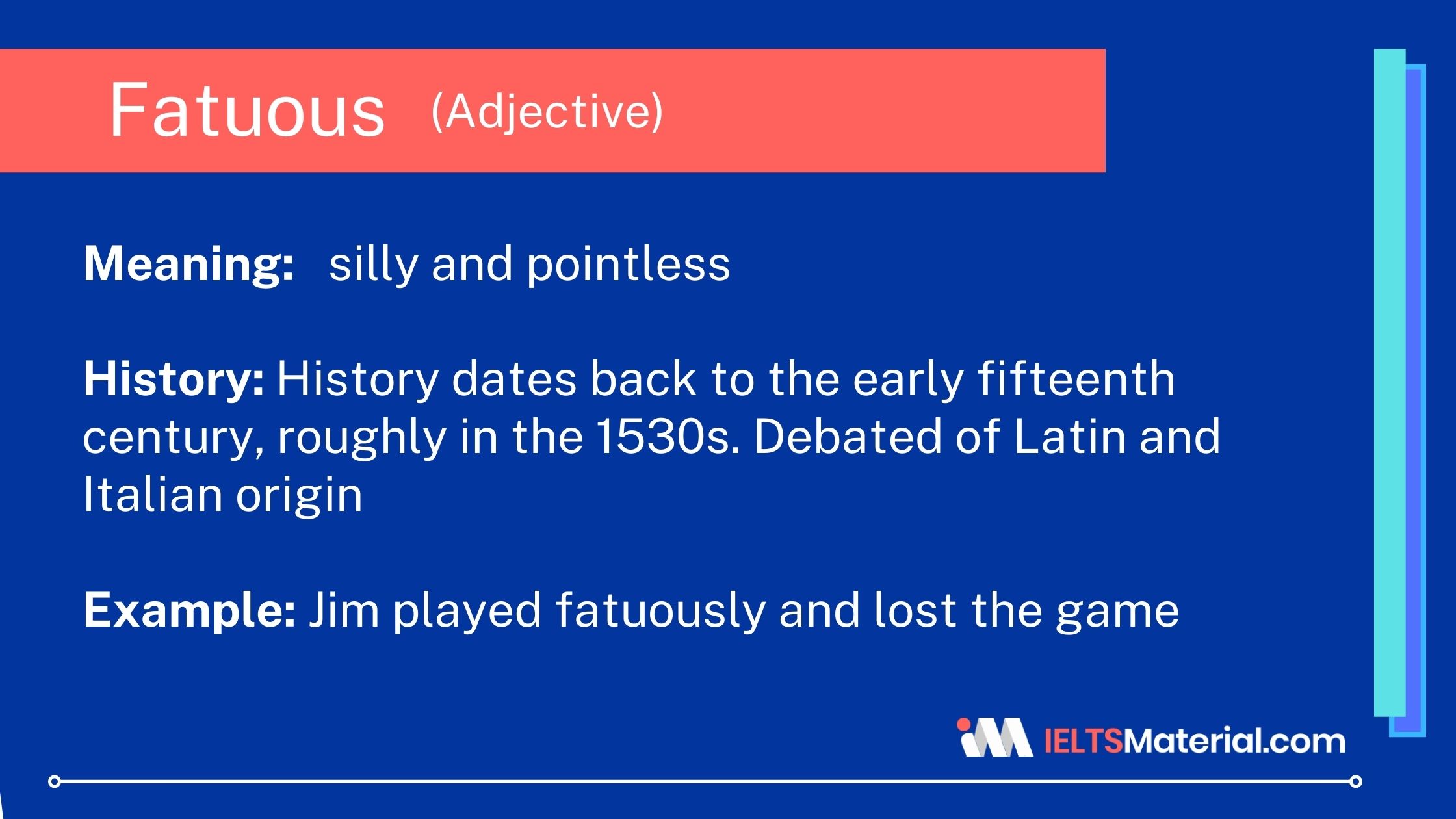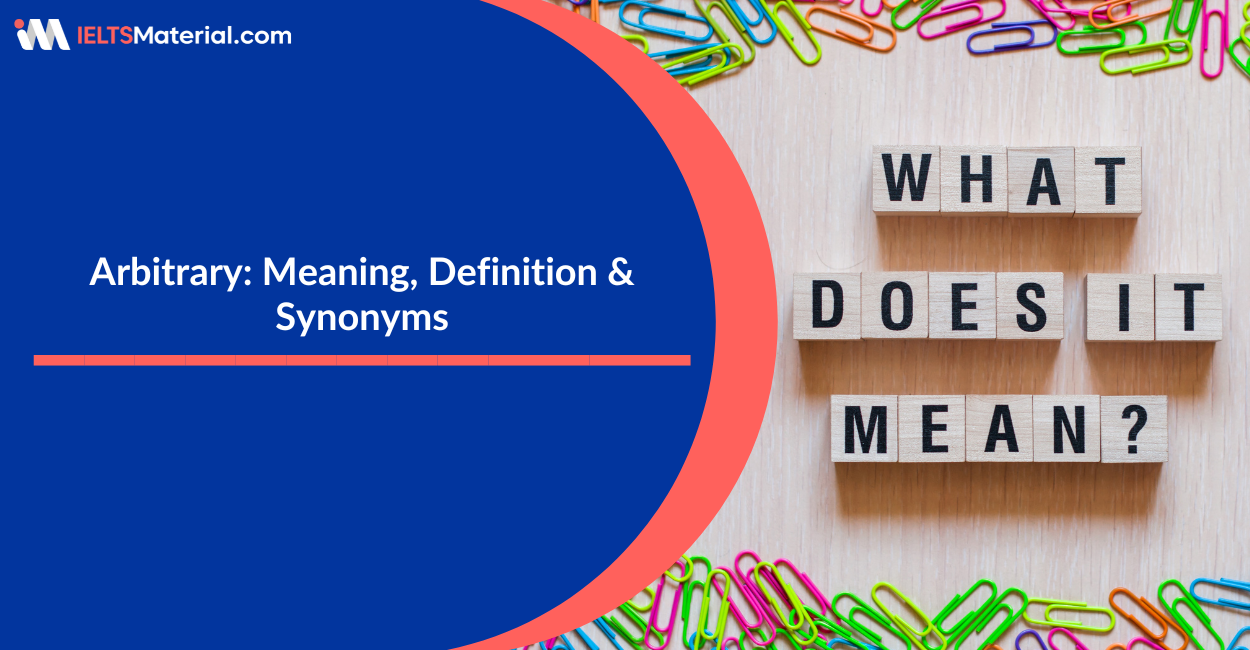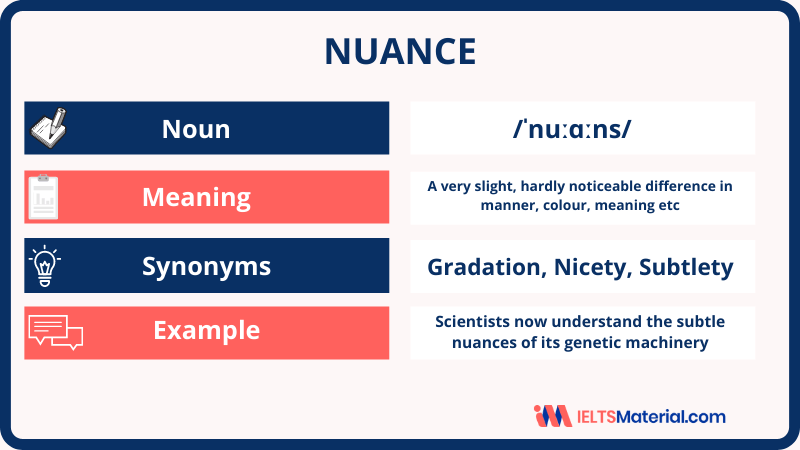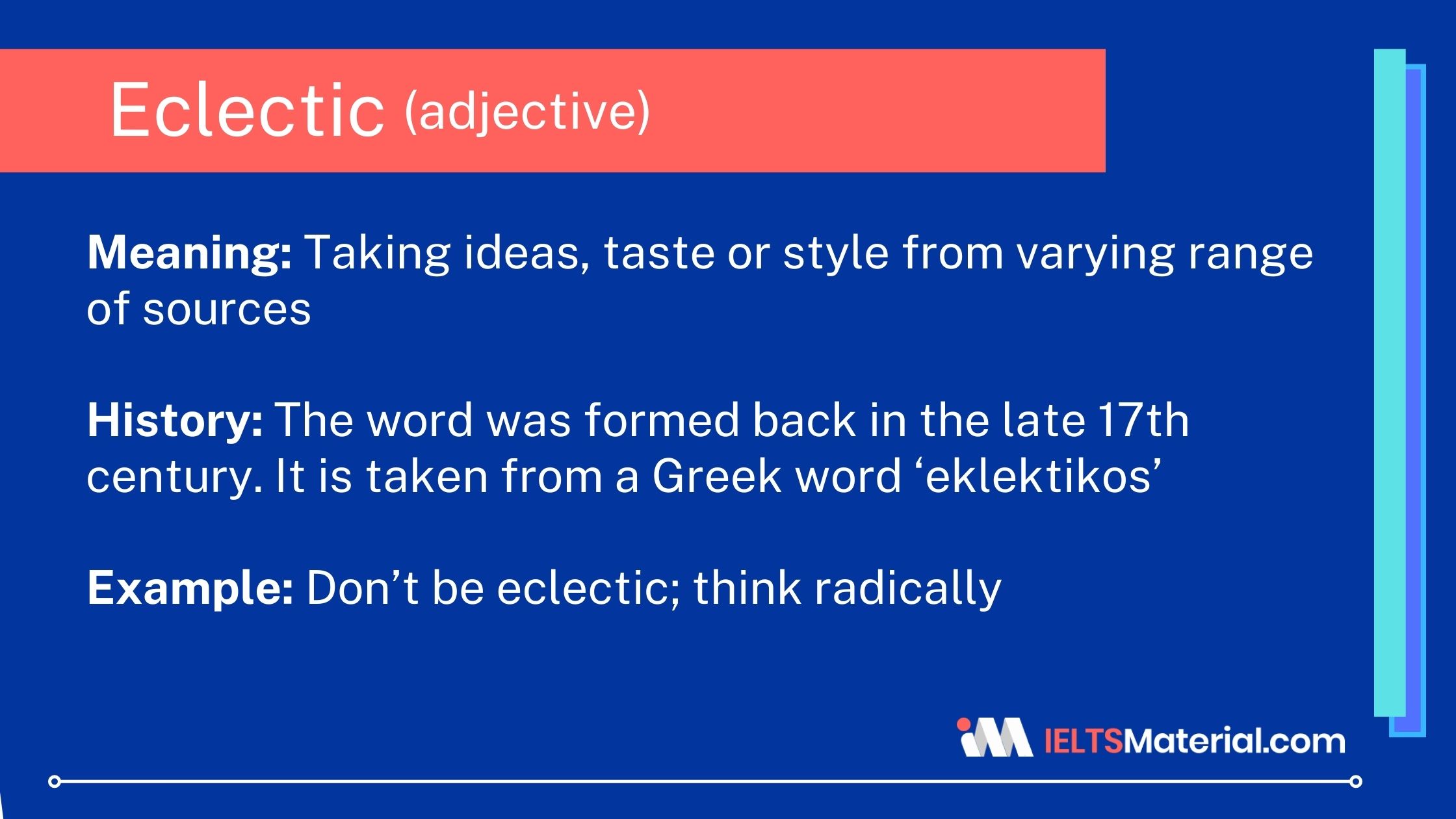Arbitrary: Meaning, Definition & Synonyms
Table of Contents

Limited-Time Offer : Access a FREE 10-Day IELTS Study Plan!
Arbitrary: Meaning, Definition & Synonyms
Arbitrary: (Adjective) /ˈɑːrbətreri/
Do you know? The word “arbitrary” can be used as both a noun and an adjective. As a noun, it means “one who has the power to decide things without being bound by rules.”
As an adjective, it means “based on personal opinion or preference, rather than reason or fact.”
The subtle difference between the two uses of the word is that as a noun, it refers to a specific person or group of people who have the power to make decisions, while as an adjective, it refers to the decisions themselves.
Meaning of Arbitrary:
decided or arranged without any reason or plan, often unfairly
Usage of Arbitrary in IELTS:
For IELTS Speaking:
The word “arbitrary” can be used in IELTS Speaking in a variety of ways. It can be used to describe decisions that are made without any clear justification or reason. For example:
- “In my opinion, the grading system in some schools can seem quite arbitrary. It feels like teachers sometimes assign grades without clear criteria or consistency.”
- “He lived so much within his own head that the times at which he ate and slept were entirely arbitrary.”
- “Non-violent protests outside the jails and the Ministry of the Interior are met with arbitrary arrest.”
When you use words like “arbitrary” in your speech, it can demonstrate your ability to express nuanced ideas and opinions, which can positively impact your IELTS speaking score. Make sure to use it appropriately and naturally within the context of your speech.
For IELTS Writing:
In IELTS Writing tasks, including essays and reports, using the word “arbitrary” can help you convey a more sophisticated and precise argument. Here’s an example of how you can use it:
- “One of the key issues with certain government policies is their arbitrary nature. For instance, tax rates that are imposed without a clear framework can lead to dissatisfaction among taxpayers. It is essential for governments to provide transparency and justification for their decisions to avoid the perception of arbitrariness.”
Using “arbitrary” in your IELTS writing can demonstrate your ability to articulate complex ideas and critique policies effectively.
Now that we have understood how to use the word, arbitrary in IELTS Speaking and IELTS Writing, Let’s now look at the use of the word, arbitrary in adjective and noun form.
Arbitrary Examples:
Adjective Form:
Here are some examples of how the word “arbitrary” can be used as an adjective:
- The teacher’s grading system was arbitrary and unfair.
- The company’s policies are arbitrary and often change without warning.
- The judge made an arbitrary decision to dismiss the case.
Noun Form:
Here are some examples of how the word “arbitrary” can be used as a noun:
- The arbitrator was given the power to decide the case.
- The president is the ultimate arbitrator of policy decisions.
- The committee acted as an arbitrary body, making decisions without explanation.
Arbitrary Synonyms:
Here are some arbitrary synonyms which you can use in your IELTS Speaking or IELTS Writing:
- Capricious
- Discretionary
- Erratic
- Frivolous
- Inconsistent
- Irrational
- Unreasonable
- Willful
- Whimsical
- Wayward
These words all mean something that is based on personal opinion or preference, rather than on reason or fact. They can be used to describe decisions, actions, or systems that are not based on any clear criteria.
Arbitrary Antonyms:
Arbitrary antonyms can be useful in writing and speech to add precision and clarity to your language. For example, instead of saying that a decision is “bad,” you could say that it is “unreasonable” or “ill-considered.” This would convey your negative opinion of the decision in a more nuanced and specific way. Here are some arbitrary examples:
- Logical
- Reasonable
- Consistent
- Predictable
- Objective
- Deterministic
- Well-defined
- Principled
- Reasoned
- Considered
- Thoughtful
- Deliberate
- Purposeful
Arbitrary Collocations:
With adverb: apparently/ entirely/ quite arbitrary
With noun: arbitrary arrest/ decision/ power/ rule/ way
Join our Master Program to get better at using words and phrases!
Arbitrary History:
The word “arbitrary” has a long and varied history. It comes from the Latin word “arbitrarius,” which means “free to act as one pleases.” The word was first used in English in the 16th century, and it originally had a more positive connotation. It was used to describe someone who was free to make their own decisions, without being bound by rules or regulations.
Arbitrary Common Misspellings:
Some common misspellings of the word “arbitrary” include “arbitraryary,” “arbitary,” and “arbitary.”
Exercise:
Match the word below to these definitions.
fluency, arbitrary, accuracy, function, language barrier, translate.
- change words from one language to another……………
- the ability to do something without making mistakes ……………………..
- something that prevents successful communication …………………….
- not based on reason or plan ………………………..
- the ability to speak without hesitation……………………
- work or carry out daily tasks……………………………….
Answer Keys
|
Check out Vocabulary for IELTS Speaking & Writing on the IELTS Material website to improve your vocabulary for IELTS and get a high score in IELTS.
Explore IELTS Resources

Start Preparing for IELTS: Get Your 10-Day Study Plan Today!
Check out other Word of the Day Articles
Recent Articles

Raajdeep Saha

Janice Thompson

Janice Thompson









Post your Comments